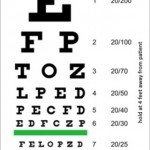
Someone recently asked me about controlling mothers — in other words, why are so many that way? There can be many causes, but the most likely one is a false belief (on the part of the mother) that a parent … Continue reading

Someone recently asked me about controlling mothers — in other words, why are so many that way? There can be many causes, but the most likely one is a false belief (on the part of the mother) that a parent … Continue reading

Finally! One, foolproof method to solve all your issues, conflicts and problems. Be totally well-adjusted in only 5 minutes! Check out (former TV psychologist) Bob Newhart’s expert advice using this informative YouTube link: http://www.youtube.com/watch?v=BYLMTvxOaeE

The purpose of a holiday is not to be rational and kind to yourself, and your loved ones, while not being this way the rest of the time. Happiness is not, or should not be, reserved for holidays. I view … Continue reading

Here’s what a friend of mine (familiar with my writing) said to another friend when told by a therapist that her cheating husband is “depressed.” Note that when a therapist uses the word “depressed,” it’s most often code for: “I … Continue reading

Some people find it hard to adapt to change. For example, there’s a weather event or something else unexpected, and you have to change your plans. I have found that emotionally healthy people handle this sort of thing well. They … Continue reading

There’s a type of person who delights in bad news or negativity. What causes this? In most cases, it affirms for the person a sense that life is futile and hopeless. Such people don’t get inspired by the heroic or … Continue reading

People who are frightened of risk — all risk, risk as such — are missing the point of life. The only thing that gives accomplishment meaning is the fact that you might not have accomplished it, yet you did. Without … Continue reading

The worst people are the ones who are confident in their errors. Error is not propped up, psychologically, by the confidence and strength of reality. Usually, people in error are propped up by a combination of their own evasion and … Continue reading

In psychological theory, there is something called the ‘ideal self.’ A person is thought to hold, consciously or subconsciously, a view of the person he’s supposed to be. If the ideal is rational, there’s no serious problem with this, but … Continue reading

Don’t worry about what others say or think. You know what your track record is — good or bad. You were there.

Will the truth set you free? Absolutely. If something really is true, it’s part of reality. You’re much better off in contact with reality than not. If you’re ignorant, knowing what’s true sets you free to be knowledgable. If you’re … Continue reading

Several people wrote and asked me if there are ways to battle “seasonal affective disorder” (SAD) either mentally or cognitively, as opposed to biochemically. My answer is yes, it is definitely worth a try. If you find that you get … Continue reading